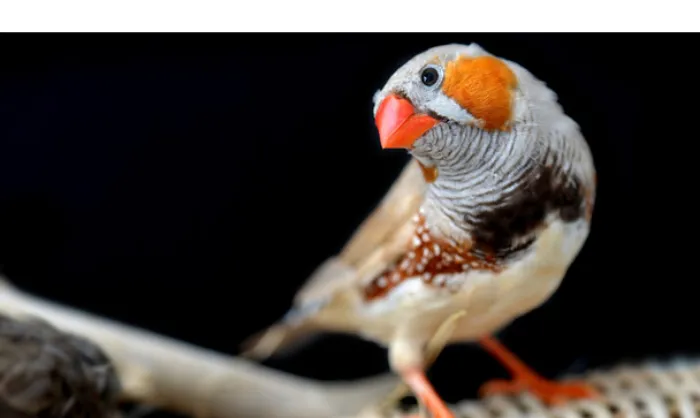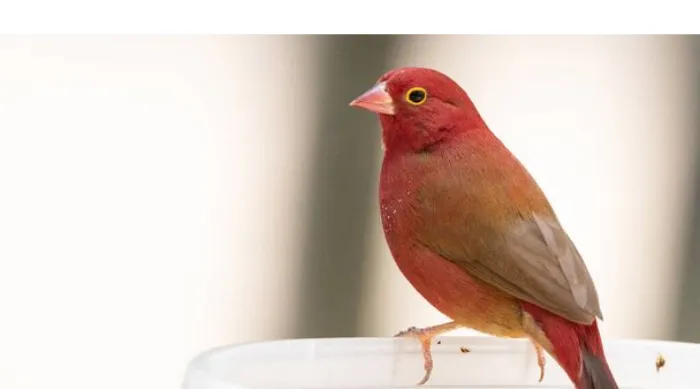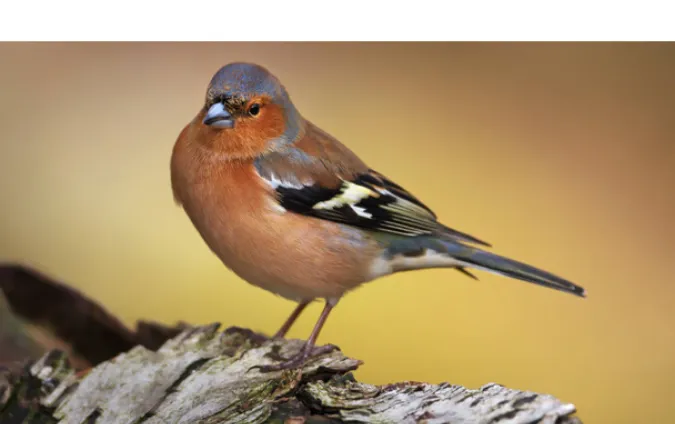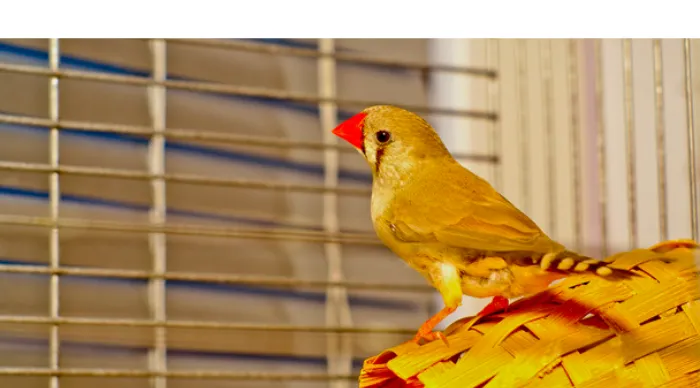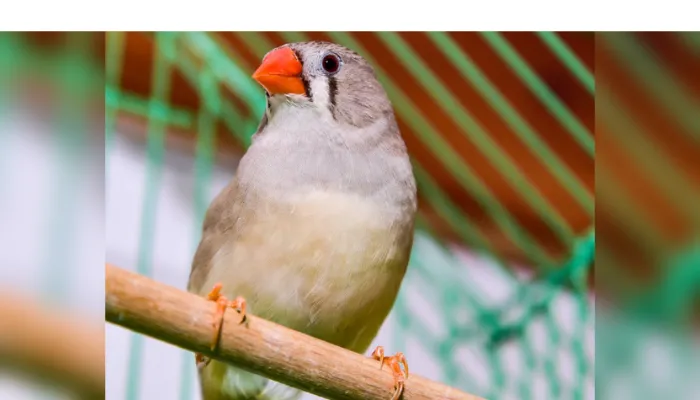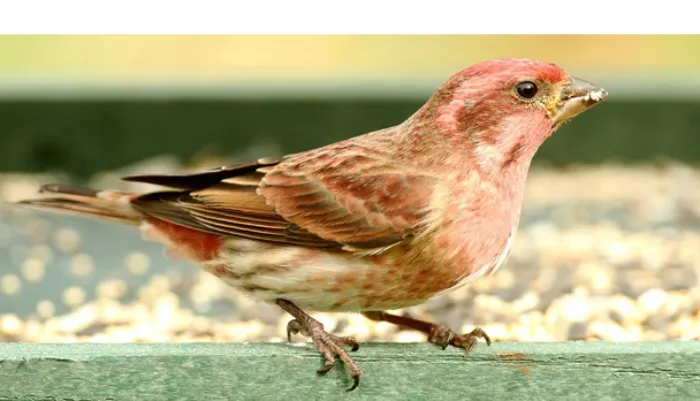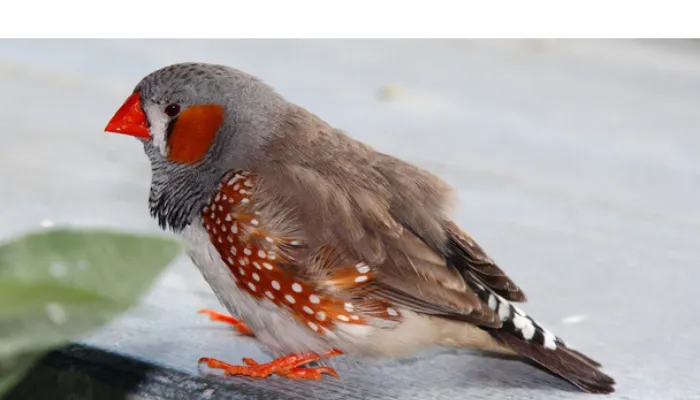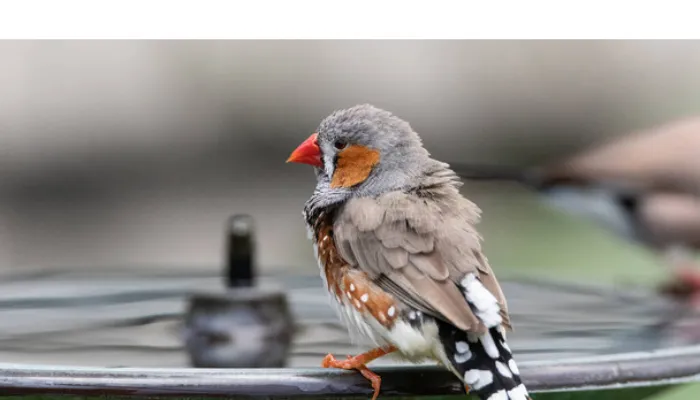Zebra finches, these lively, chirpy birds, are a favorite among pet enthusiasts. Known for their striking stripes and active behavior, they’ve become an iconic pet in many homes across the US, UK, and Canada.
When it comes to taking care of our feathery friends, the right lighting is crucial. Not only does it influence their mood and behavior, but it also contributes to their overall health.
But here’s where things get intriguing – does a zebra finch need UV light? The question might seem simple, but the answer is rich and layered.
Just as plants need sunlight to thrive, birds like zebra finches benefit from a good light source.
Quick Answer
Do Zebra Finches Need UV Light?
The quick and straightforward answer to this question is yes, zebra finches do benefit from UV light. It’s not just about illumination; it’s about their well-being.
UVB rays, in particular, enable zebra finches to synthesize Vitamin D3, crucial for their calcium metabolism. This helps in bone formation and general health.
However, it’s worth noting that the intensity and duration of UV light exposure need to be controlled. Too much can be harmful, and too little might not be sufficient.
Additionally, UVA light, which is part of the UV spectrum, enables zebra finches to see in a way that humans can’t. This perception affects their behavior, social interactions, and even their mating habits.
Understanding UV Light
What is UV Light?
UV light, or ultraviolet light, is an invisible type of electromagnetic radiation to the human eye. But don’t let the invisibility fool you – it’s an essential aspect of sunlight.
Types of UV Light
UV light can be broken down into three main categories:
- UVA: This is the least harmful and most prevalent type. It’s responsible for the skin’s tanning effect.
- UVB: More intense than UVA, UVB is vital for Vitamin D synthesis in humans and animals, including zebra finches.
- UVC: The most dangerous type, UVC is mostly absorbed by the Earth’s atmosphere and rarely reaches the surface.
For zebra finches, UVA and UVB are particularly important. UVA helps them uniquely perceive the world, while UVB is essential for their health.
How Birds Perceive UV Light
Birds like zebra finches see the world differently from us. Their eyes can detect UVA light, enabling them to see patterns and colors invisible to humans. This perception affects everything from finding food to choosing a mate.
Interestingly, this isn’t just limited to exotic birds like zebra finches. Even common birds, like house finches, have similar abilities.
If you’re curious about these birds, you might want to learn about their behavior and whether are house finches invasive.
Zebra Finches and UV Light
The Necessity of UV Light in Zebra Finches’ Habitat
Zebra finches, like many birds, thrive when their habitat includes natural or artificial UV light sources. UV light helps these finches in several ways:
- Bone Health: UVB rays allow them to synthesize Vitamin D3, aiding in calcium absorption.
- Visual Communication: UVA helps zebra finches see patterns and colors, vital for mating and socializing.
- Feeding Behavior: UV light enhances the visibility of certain foods.
Sources of UV Light: Natural and Artificial
The sun provides natural UV light, but indoor zebra finches will need an artificial source. Special UV bulbs are designed to offer the right balance of UVA and UVB rays.
Proper UV Light Setup for Zebra Finches
Setting up UV light for your zebra finches isn’t just screwing in a bulb. Here’s how to do it right:
- Select the Right Bulb: Look for bulbs specifically designed for birds, providing UVA and UVB rays.
- Monitor the Intensity: Too much UVB can harm the birds, while too little won’t provide the needed benefits.
- Placement Matters: The bulb should be placed at a distance that replicates natural sunlight exposure.
Zebra finches’ UV light needs are a perfect example of how detailed care can replicate their natural environment. It’s not only about keeping them happy but also about ensuring they lead a healthy life.
For those interested in bird conservation, you might want to explore whether are house finches protected, which offers insights into another fascinating bird species.
Potential Risks and How to Avoid Them
While UV light offers numerous benefits for zebra finches, like everything in life, there’s a need for balance. Too much of a good thing can lead to problems.
Let’s dive into the potential risks of UV light for zebra finches and how to avoid them.
Possible Harm from Excessive UV Light
- Skin and Eye Damage: Too much UVB can lead to skin and eye issues in zebra finches. It’s like getting a sunburn, but for birds.
- Behavioral Changes: Excessive UV light might cause stress or abnormal behavior.
Guidelines for Safe UV Light Usage
- Choose the Right Bulb: Select bulbs specifically made for birds, offering the correct UVA and UVB balance.
- Control Exposure: Use a timer to control the duration of exposure. Remember, zebra finches need some dark time too.
- Regular Monitoring: Keep an eye on your birds for any signs of discomfort or changes in behavior.
- Consult a Veterinarian: If in doubt, consult with a bird specialist or veterinarian.
Using UV light for zebra finches is like seasoning a perfect dish – you want just the right amount. Too little and you miss out on the benefits, too much, and you risk harming these delicate creatures.
Zebra Finch Care Essentials: Beyond UV Light
Caring for zebra finches goes beyond just providing UV light. It’s about creating a habitat that mirrors their natural environment, offering them the comfort and care they deserve. Let’s explore the essentials:
Diet and Nutrition
- Balanced Diet: Provide a mix of seeds, fruits, and vegetables.
- Supplements: Calcium and vitamin supplements may be needed, especially if UV light is lacking.
Housing and Environment
- Cage Size: Ensure adequate space for flying and perching.
- Toys and Perches: Keep them entertained with bird-safe toys and natural wood perches.
Social Needs
- Companionship: Zebra finches are social birds and thrive with companions.
- Interaction: Spend quality time with your finches, talking and interacting with them.
Healthcare and Grooming
- Regular Check-ups: A vet specializing in birds should regularly examine them.
- Grooming: Beak, nail, and feather care is essential.
Temperature and Humidity
- Controlled Environment: Keep the temperature between 65-75°F (18-24°C) and humidity around 40-60%.
Monitoring for Signs of Illness
- Observation: Watch for any changes in behavior, appearance, or eating habits.
- Prompt Care: If something seems off, consult a veterinarian immediately.
Caring for zebra finches is like tending to a delicate garden. Each element – from UV light to diet – plays its role in keeping these beautiful birds healthy and happy.
Frequently Asked Questions (FAQ)
Q1: Can I use any UV bulb for my zebra finches?
A: No, always choose bulbs specifically designed for birds. They provide the right balance of UVA and UVB rays.
Q2: How many hours of UV light do zebra finches need daily?
A: Generally, 8-12 hours of UV light exposure is sufficient. It should mimic the natural day and night cycle.
Q3: Is natural sunlight enough for indoor zebra finches?
A: While natural sunlight is best, it may not be enough for indoor birds. Windows can block UVB rays, so a special UV bulb might still be necessary.
Q4: Can too much UV light harm my zebra finches?
A: Excessive UV light can lead to skin and eye problems. Monitoring and controlling exposure is key.
Q5: Do zebra finches need UV light in winter?
A: Yes, UV light is essential year-round. It helps with Vitamin D3 synthesis, which is vital for bone health.
Q6: Can I use UV light with other birds?
A: UV light requirements vary among different bird species. Always consult with a specialist or do research specific to the bird you are caring for.
Conclusion
Caring for zebra finches is a delightful and rewarding experience. Providing UV light is just one aspect of the care they require, but it’s an essential one that mirrors their natural habitat.
From understanding the different types of UV light to selecting the right bulbs and avoiding potential risks, UV light care is both a science and an art. It’s about replicating the sun’s glow, allowing your zebra finches to flourish in health and happiness.
Remember, caring for these birds isn’t just a checklist of tasks. It’s like painting a masterpiece where every brushstroke – from diet to social interaction – contributes to the overall beauty of their lives.
With proper care, including adequate UV light, your zebra finches can enjoy a thriving, joyous existence, full of song and color.
They bring a slice of the wild into your home, and in return, all they ask is for love, care, and a bit of sunshine, real or artificial.
